The best Wi-Fi routers in 2026: top expertly tried and tested wireless routers
Stream, game and browse better with the best Wi-Fi routers
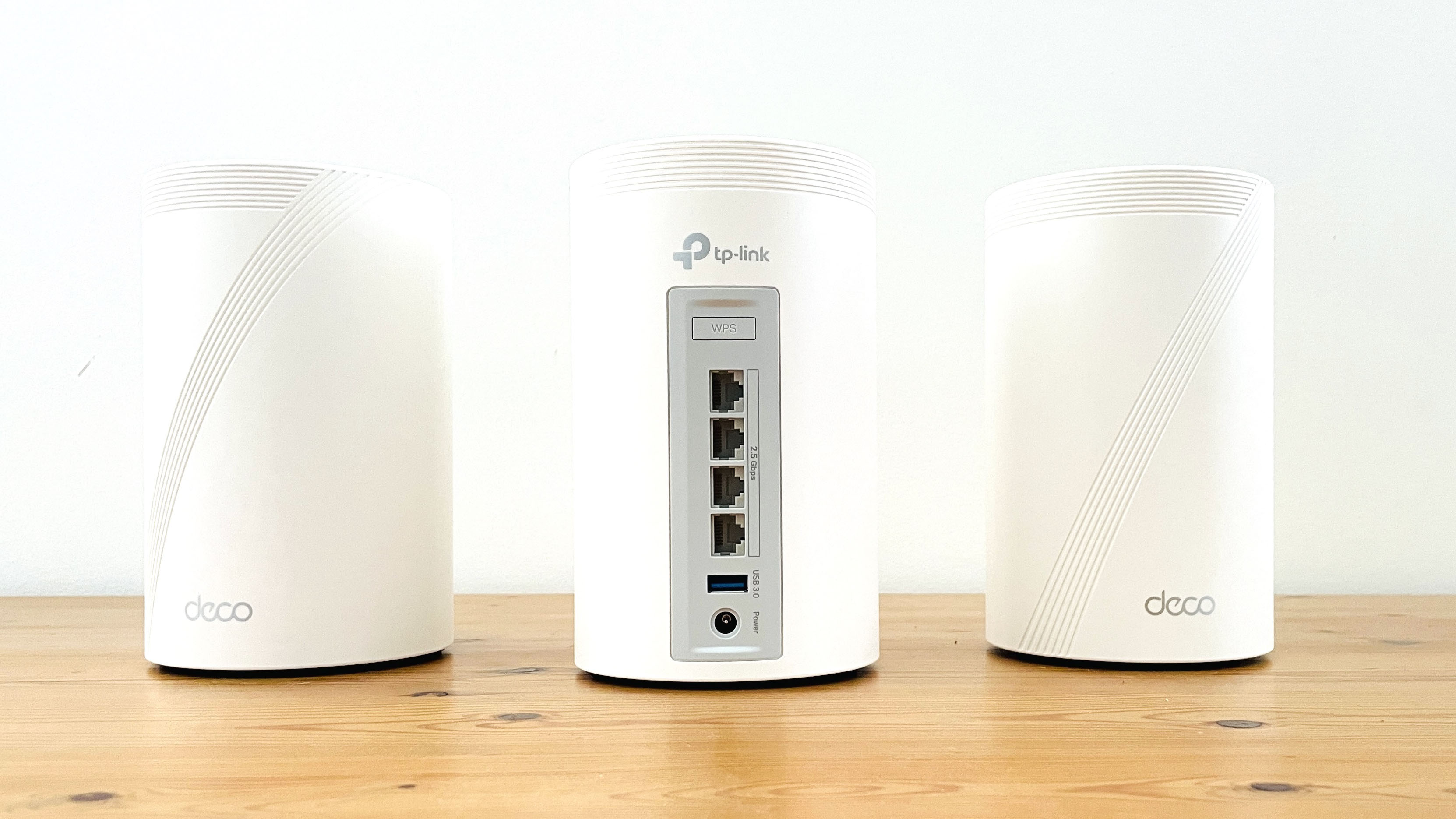
Sign up for breaking news, reviews, opinion, top tech deals, and more.
You are now subscribed
Your newsletter sign-up was successful
Welcome to our pick of the best Wi-Fi routers in 2026. With our homes filling up with internet-connected smart devices, investing in a router is incredibly important, as it will ensure that every device in your home has a fast, dependable and secure wireless connection.
Most Internet Service Providers (ISPs) provide a modem router to their customers when they subscribe – so why should you spend money on a separate router?
For a start, most of these free routers are rather basic, and often lack advanced features you'll find in the best Wi-Fi routers we list below, such as the latest Wi-Fi 7 technology, QoS (Quality of Service) settings to help prioritize certain devices, parental controls (important if, like me, you have children), and much more.
The modem routers your ISP gives you are usually quite locked down when it comes to configurations. This is understandable, as changing the wrong setting could mean your internet connection stops working, but it also limits what you're able to do with your home network.
It also means that if you swap broadband supplier, you'll need to replace the modem router, and that can cause a lot of disruption. With a seperate router, you can swap the ISP's modem for a new one without having to reconnect all of your devices.
So, swapping out an existing router for one featured in this guide to the best Wi-Fi routers can give your home network an instant upgrade with potentially faster internet speeds, while devices in the far corners of your house could finally be able to connect to the internet, thanks to larger and more stable Wi-Fi coverage.
Buying a new Wi-Fi router can be difficult, however, as there is such a huge range of makes and models, and you'll want to make sure your new router is compatible with your internet connection and your devices in your home. Wi-Fi 7 is the latest wireless tech (even though we are beginning to hear from tech companies about Wi-Fi 8, that technology is still quite far off), so now's a great time to upgrade your home Wi-Fi network with a new router. In this guide, we have high-end picks that offer seriously speedy connections, alongside more affordable options and mesh routers as well, which can cover your entire property with lightning-fast Wi-Fi.
For more router buying advice, make sure you check out our guides on the best mesh Wi-Fi systems, best gaming routers, and best Wi-Fi extenders.
This buying guide was updated on 01/19/2026 with the latest buying advice for the new year.
The best Wi-Fi router in 2026
Why you can trust TechRadar
Below you'll find full write-ups for each of the best WiFi router picks on our list. We've tested each one extensively, so you can be sure that our recommendations can be trusted.
The best Wi-Fi router overall
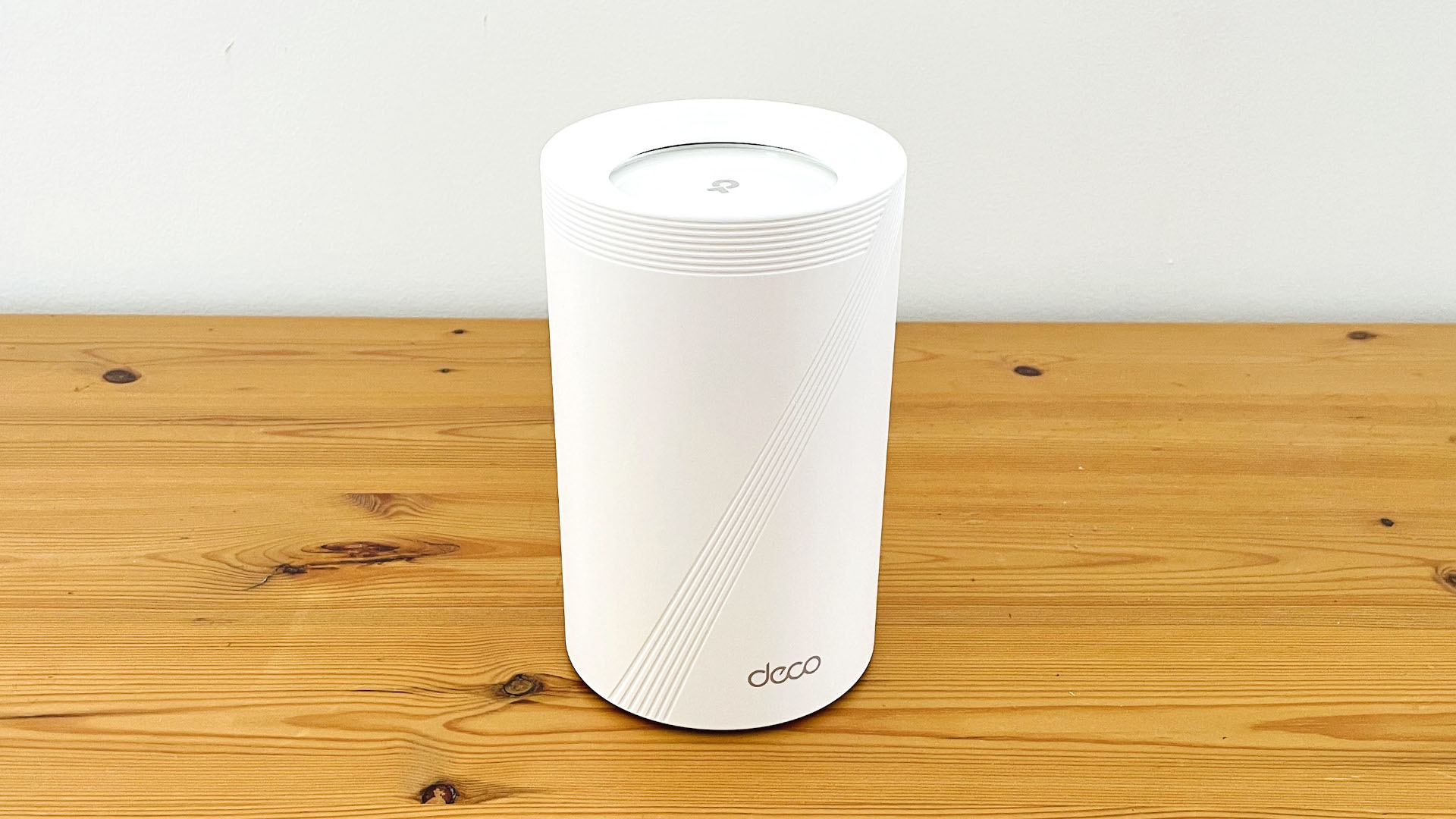
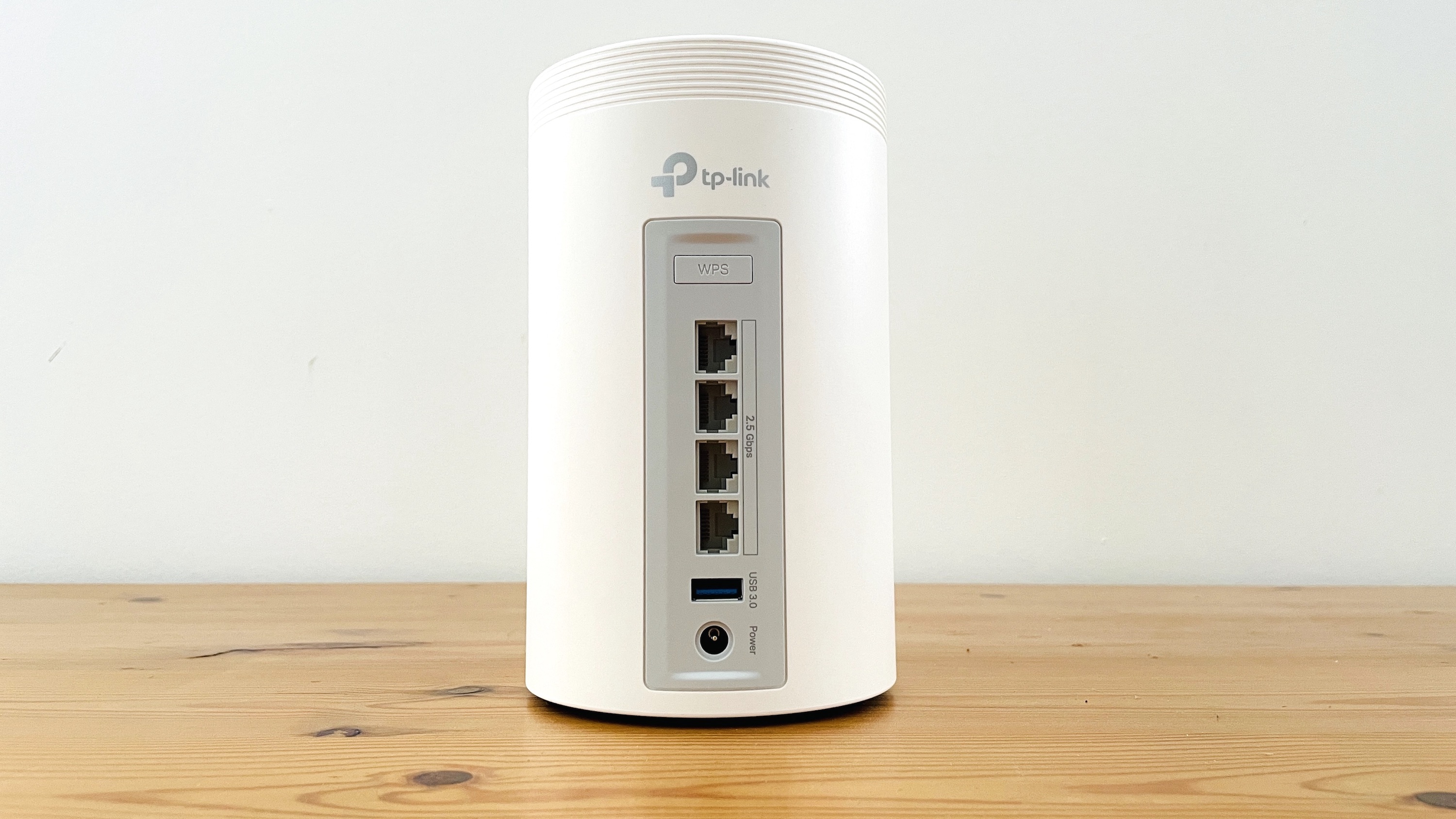


Specifications
Reasons to buy
Reasons to avoid
The TP-Link Deco BE63 is our latest pick as the best Wi-Fi router you can buy in 2026 (as well as out pick as the best mesh Wi-Fi system). It features cutting-edge Wi-Fi 7 support for fast speeds and wide and dependable wireless signal. It's also got a very competitive price, so it won't cost you a fortune like some other mesh Wi-Fi systems do.
During our review of the TP-Link Deco BE63 we were impressed with how the Wi-Fi router and its satellites performed, giving our test network a speed boost, while also broadening the range of the network which allowed areas of the building that usually could not get Wi-Fi to connect with ease.
The TP-Link Deco BE63 also comes with some great features, including free parental controls, which makes this an excellent Wi-Fi mesh system for large family homes, as it means everyone in the house can connect easily, while also making sure that younger family members are kept safe.
Setting up the router, and connecting its satellites which act as Wi-Fi repeaters to extend the network, was very easy, and while we tested the three-unit version (which is sometimes called the Deco BE65 in the UK and Australia), you can also buy two-unit packs for smaller homes and offices, and a single unit as well, which can either be used as a traditional router, or added to an existing mesh network to expand the range.
Read our full TP-Link Deco BE63 review
The best affordable Wi-Fi 7 router
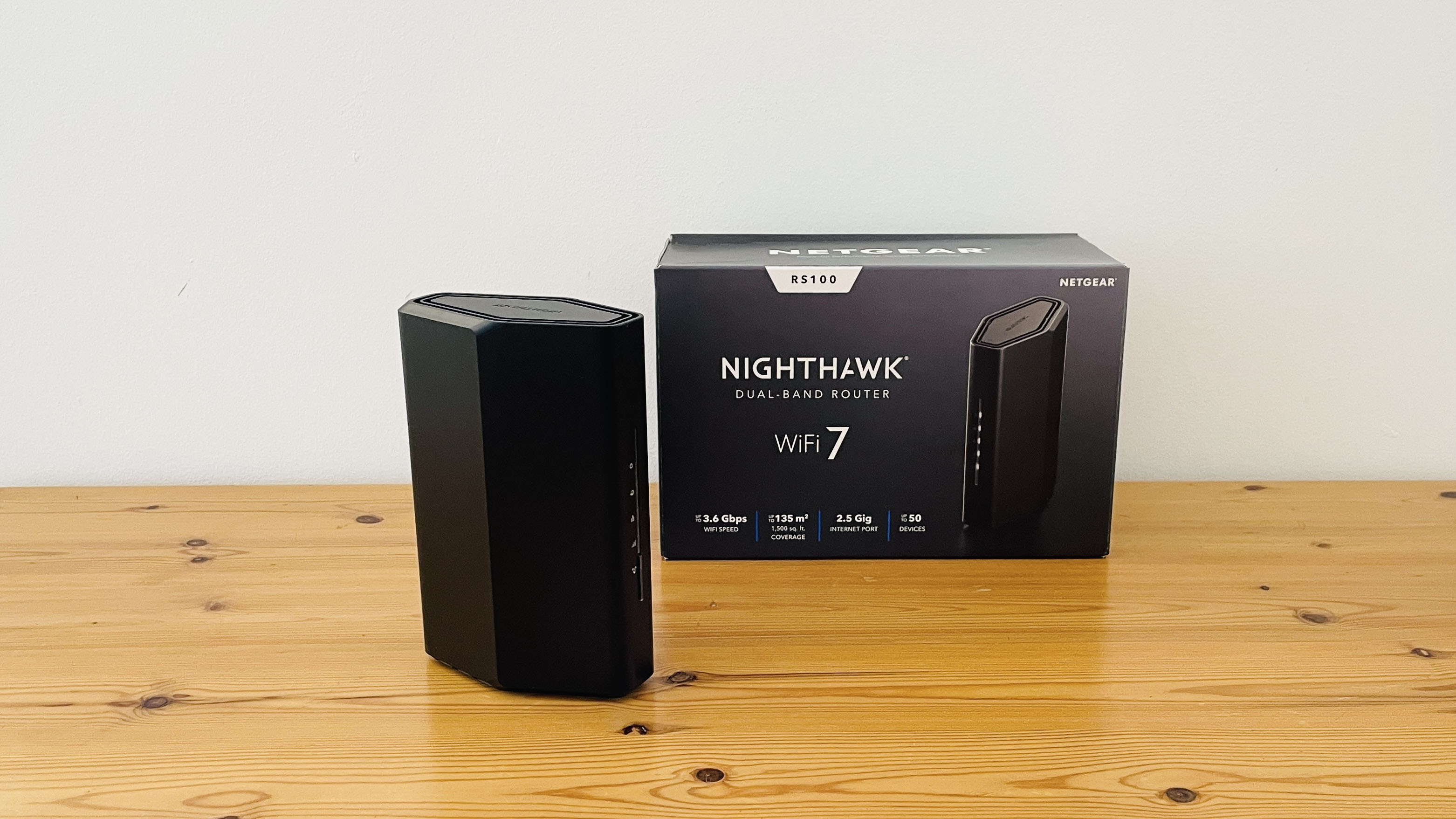
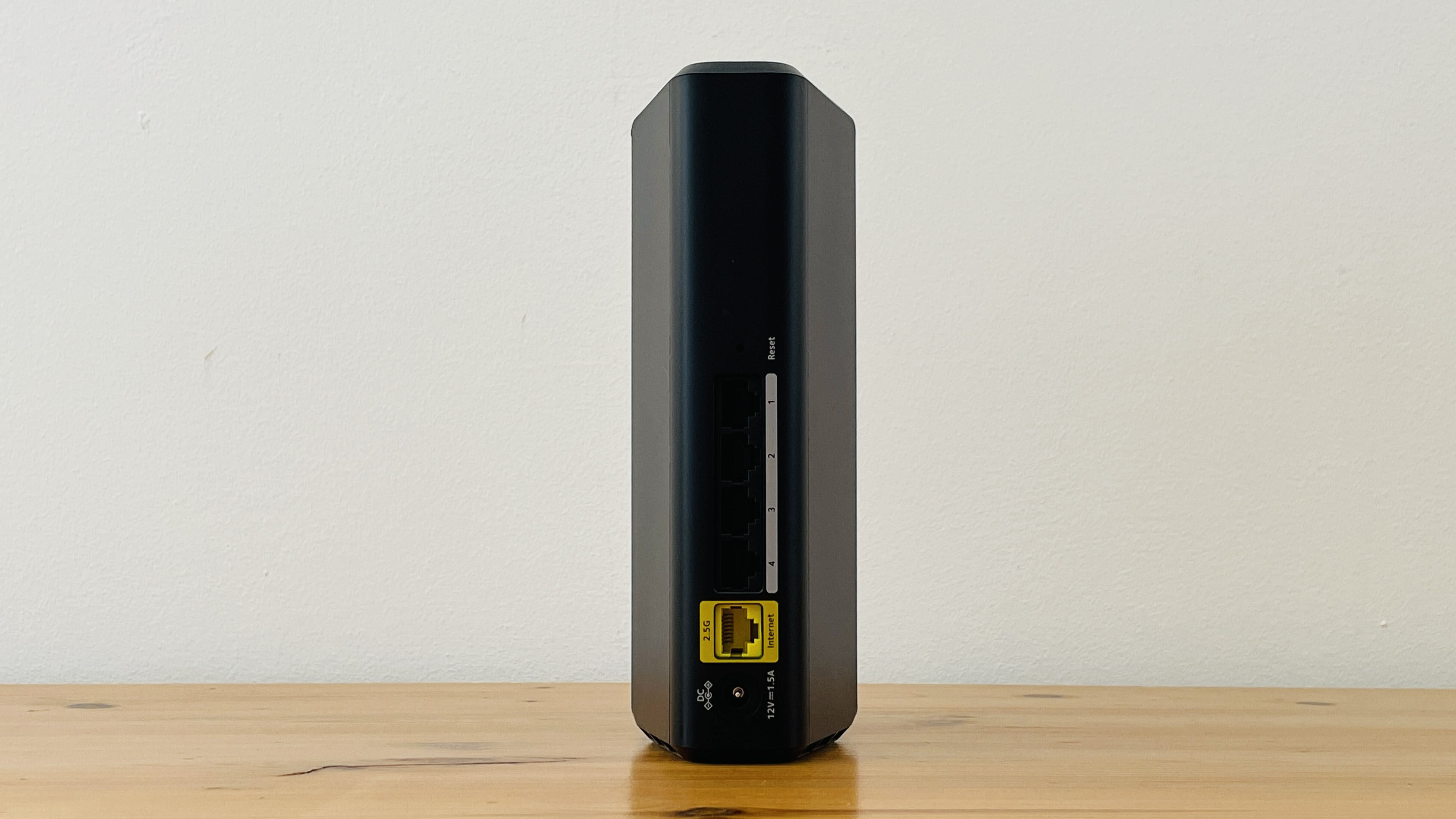
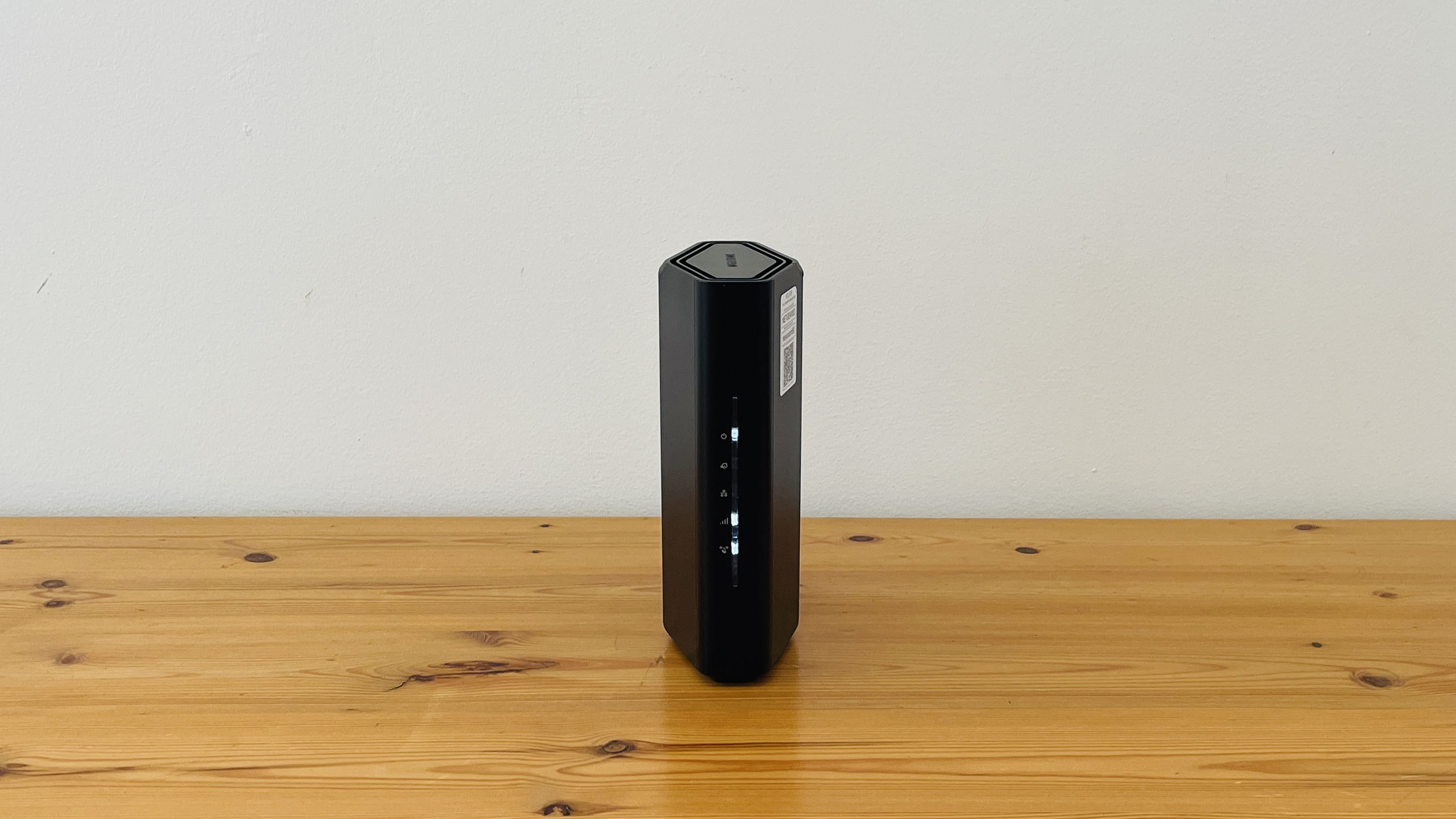
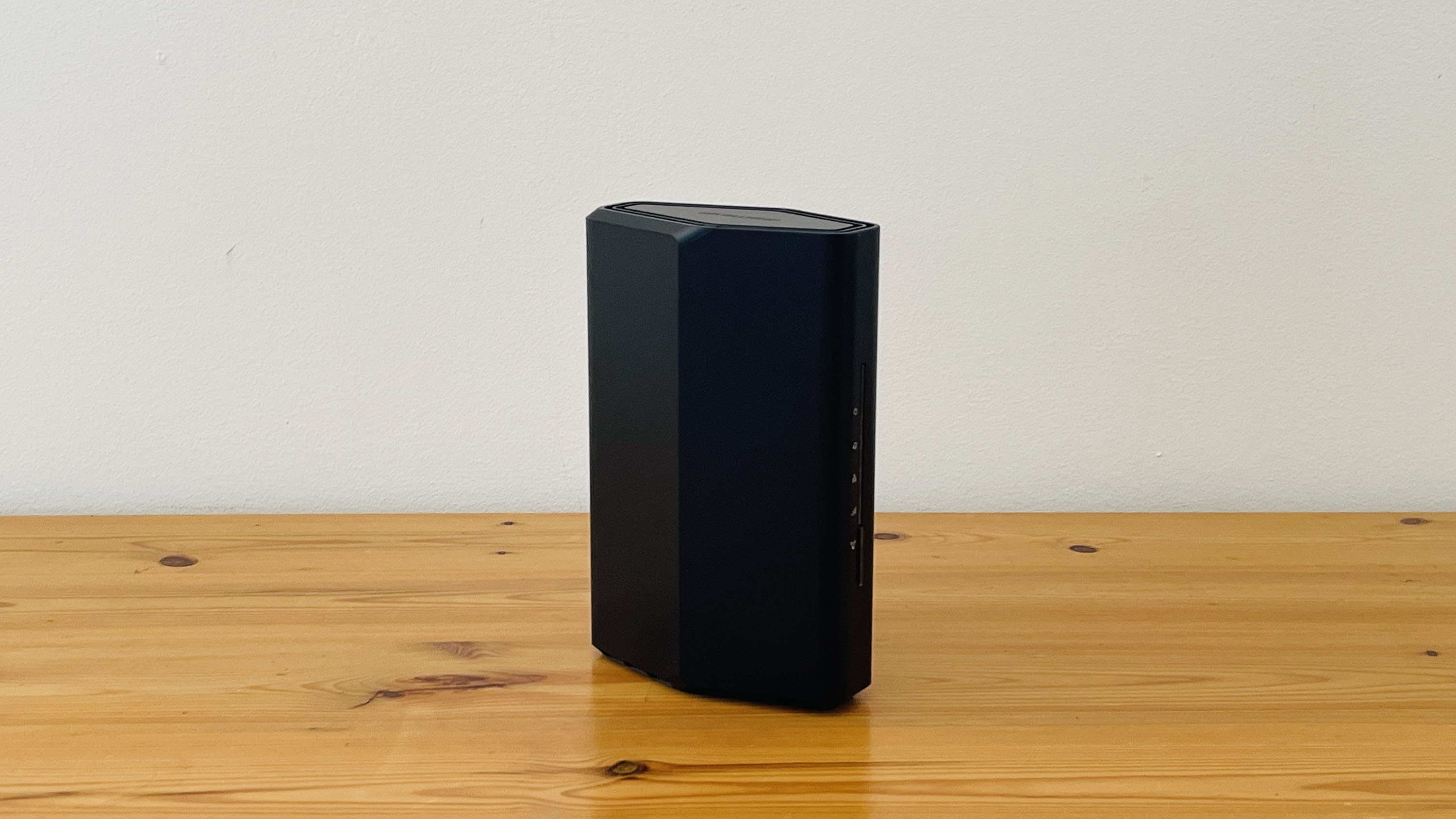
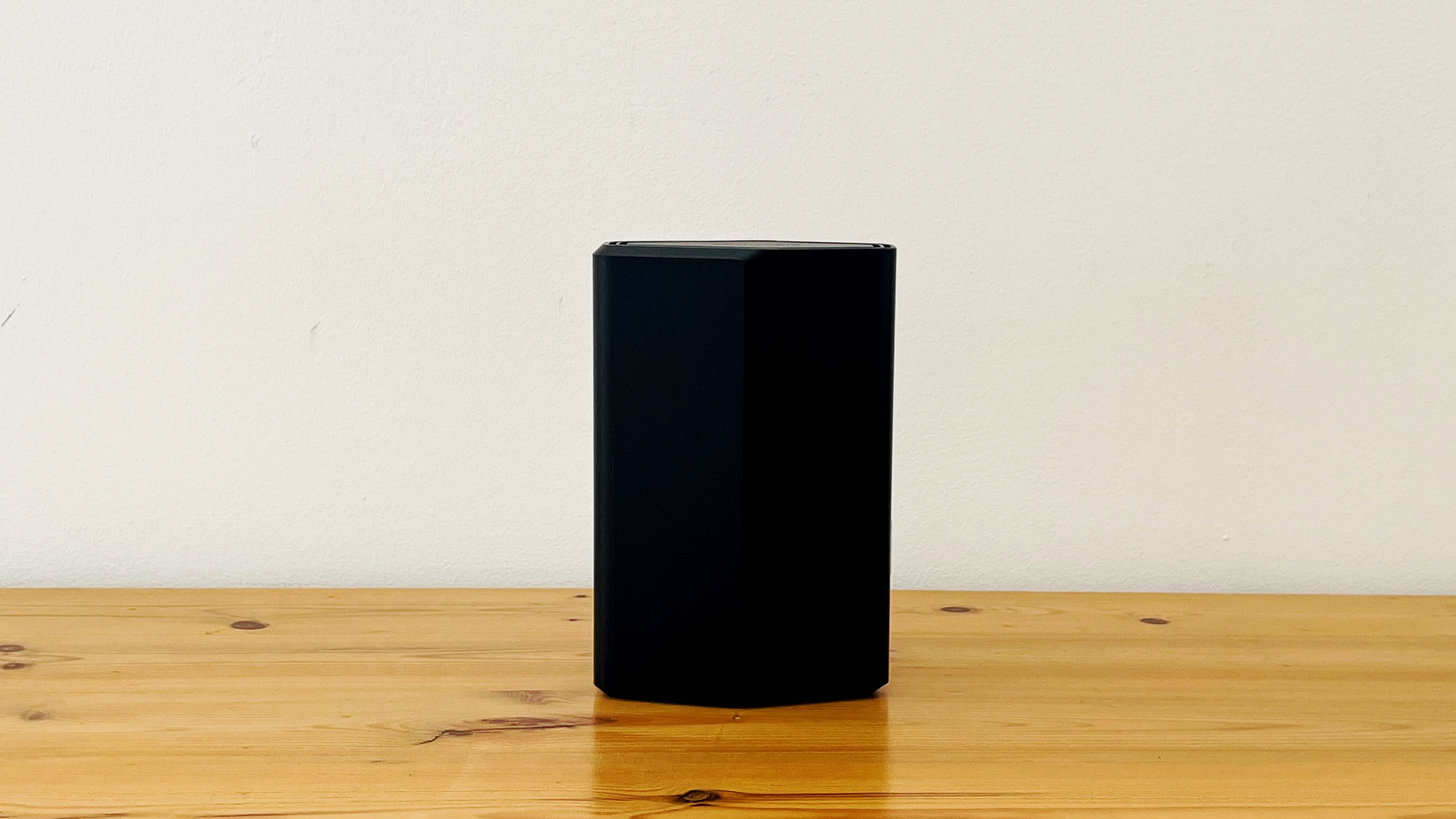
Specifications
Reasons to buy
Reasons to avoid
The Netgear Nighthawk RS100 proves that you don't have to spend an absolute fortune if you want to future-proof your home network and go for Wi-Fi 7, the very latest wireless networking technology.
Netgear, which used to be best known for more expensive routers, has been steadily putting out a range of affordable routers that combine some of the latest technology and features, whilst also keeping prices low.
Of course, there have been some compromises made so that the Nighthawk RS100 remains affordable. It's a dual-band router, supporting both 2.4GHz and 5.0GHz bands, but not the faster 6.0GHz band that more expensive Wi-Fi 7 routers offer.
Whilst it's not the fastest Wi-Fi 7 router, the benefits Wi-Fi 7 offers are more than just about raw speed. It allows for more devices to access the network at once (which is very handy for modern households with seemingly endless amounts of smart devices all vying for your internet connection), and with a stronger wireless network with a wider range, the Nighthawk RS100 will be a big upgrade over older wireless routers.
In our tests the Netgear Nighthawk RS100 did an excellent job of maxing out our broadband connection, while also reaching areas a Wi-Fi signal usually struggles to get to. It also comes with features that can help improve online game performance, which is why it's also one of our picks for the best gaming router.
Read our full Netgear Nighthawk RS100 review
The premium Wi-Fi router
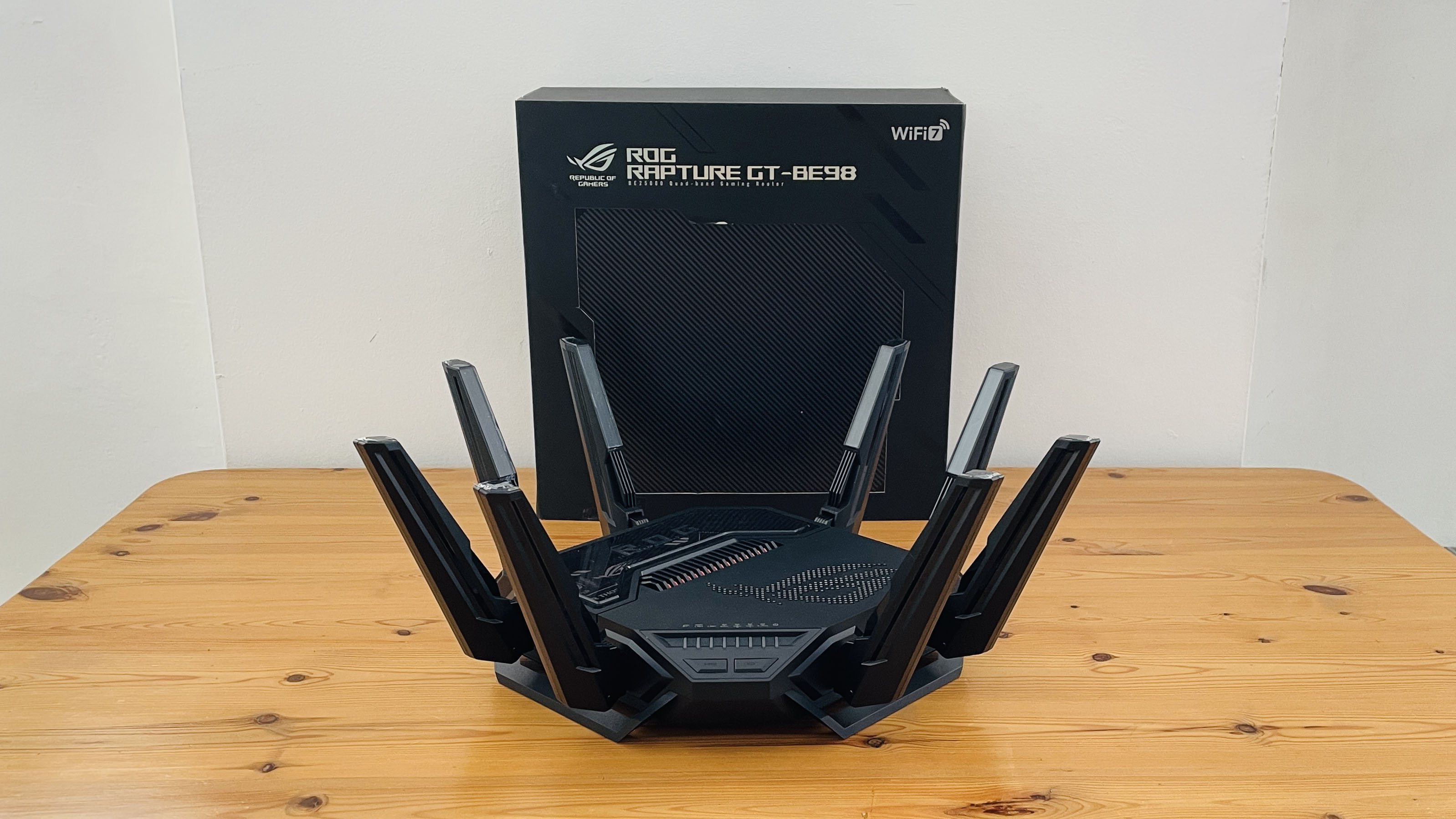
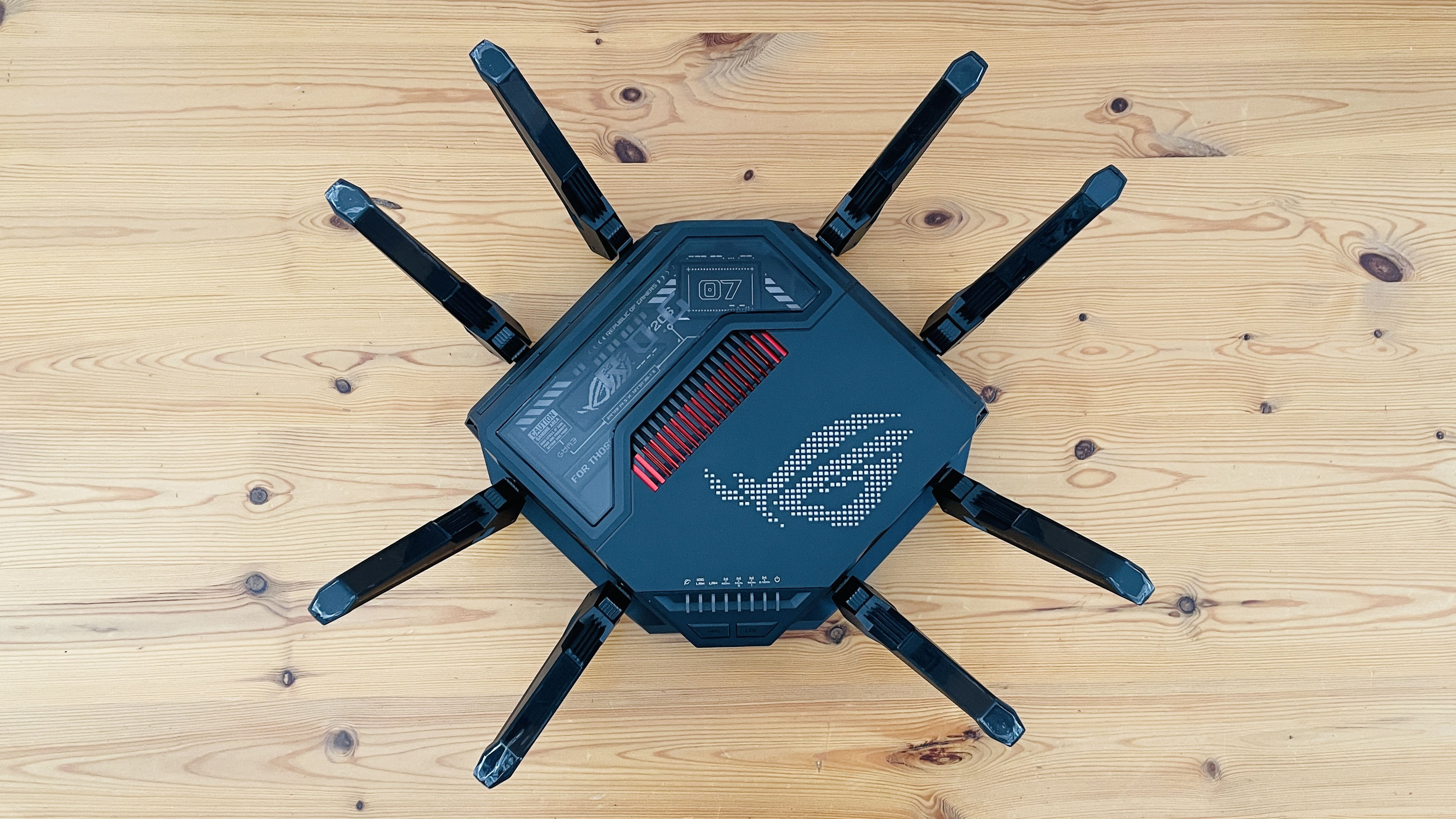
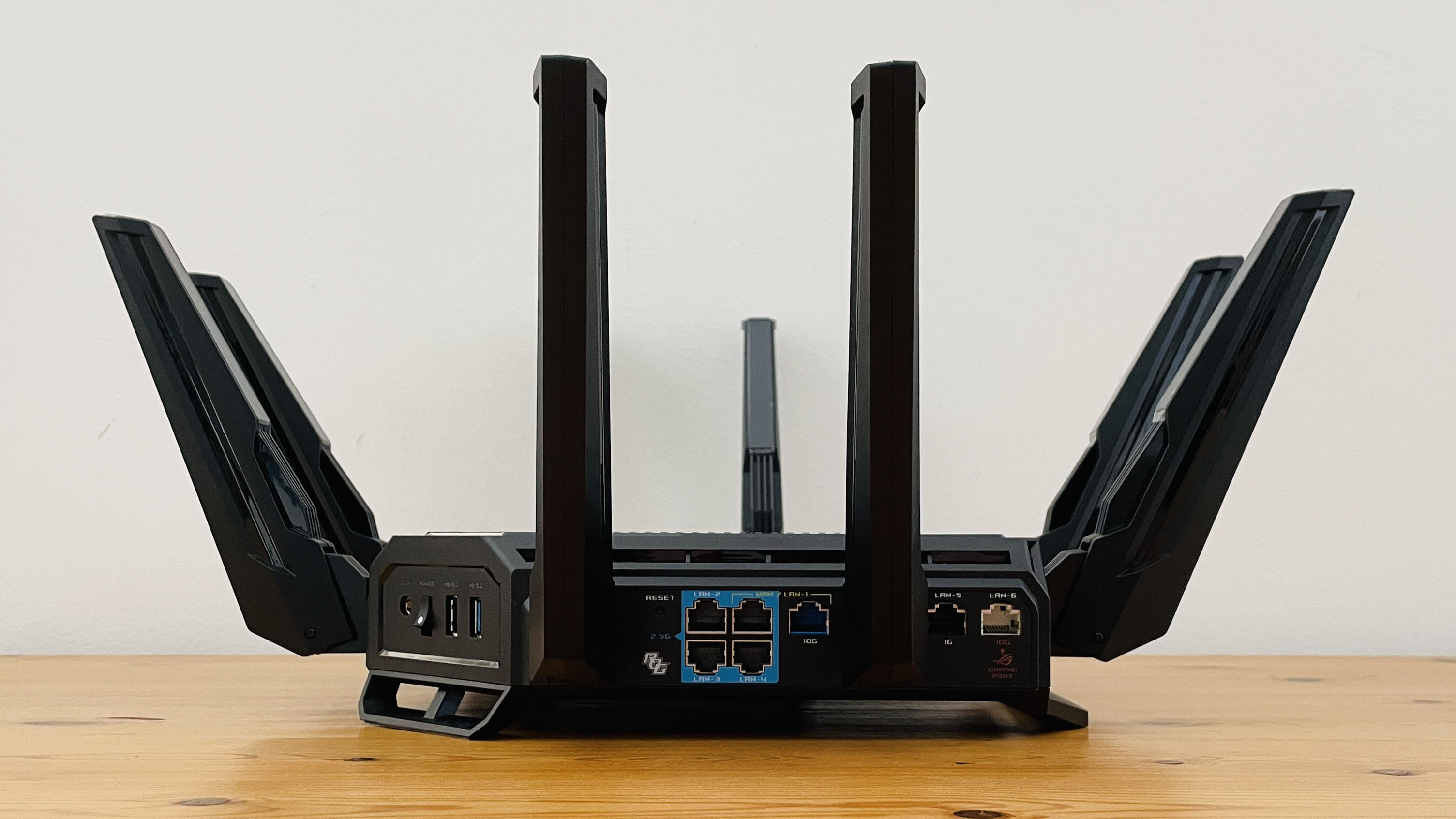
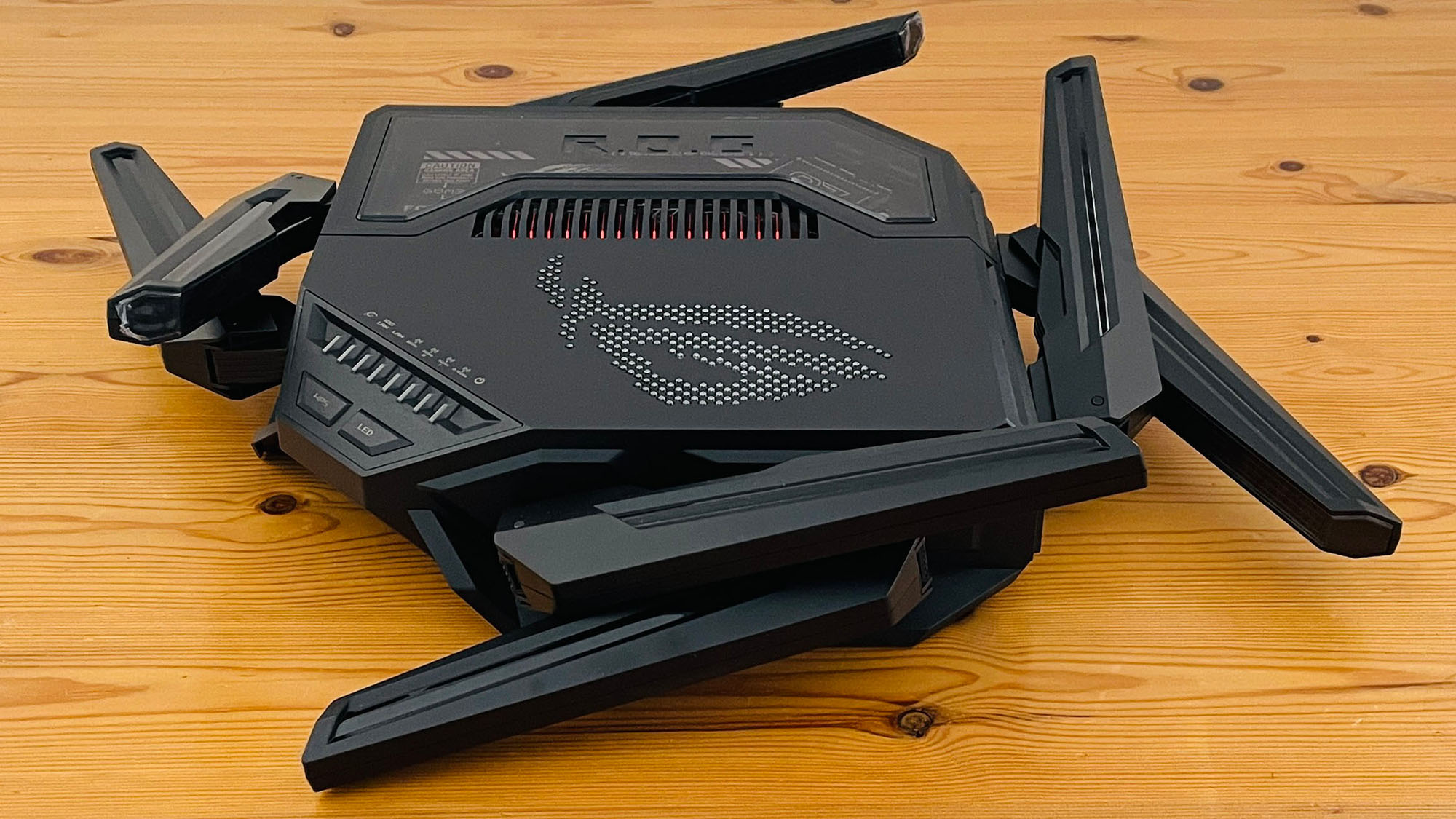
Specifications
Reasons to buy
Reasons to avoid
If you want a cutting-edge router, then the latest tech is Wi-Fi 7 – and the Asus ROG Rapture GT-BE98 is one of the fastest of this breed we’ve seen, with performance and features that mean it’s future-proofed to the extreme.
The Rapture GT-BE98 offers quad-band Wi-Fi 7 (2.4GHz, 2 x 5GHz, and 6GHz bands) and a top speed of 24.4Gbps. In our testing, we found it had blistering real-world performance, the only likely limitation being the speed of the internet connection it’s hooked up with. Wired connectivity is also a strong suit, as you get 2.5Gb Ethernet ports and even two 10Gb ports (one of which is a dedicated priority port for gaming).
As well as top-notch performance, you get a well-featured router and that includes parental controls to keep the kids safe when they’re online – and this is free too (note that some parental controls require a subscription these days).
Naturally, you’ll pay for all these goodies and the dizzying speeds on offer, and the Asus ROG Rapture GT-BE98 is a very expensive piece of kit. Then again, it’ll last you a long way into the future, so the investment could work out to be an astute one over the longer run. Furthermore, if you’re willing to wait a while, pricing will likely drop (at least to some extent) – as ever, early adopters pay for the privilege.
Read our full Asus ROG Rapture GT-BE98 review
The best budget mesh WiFi router
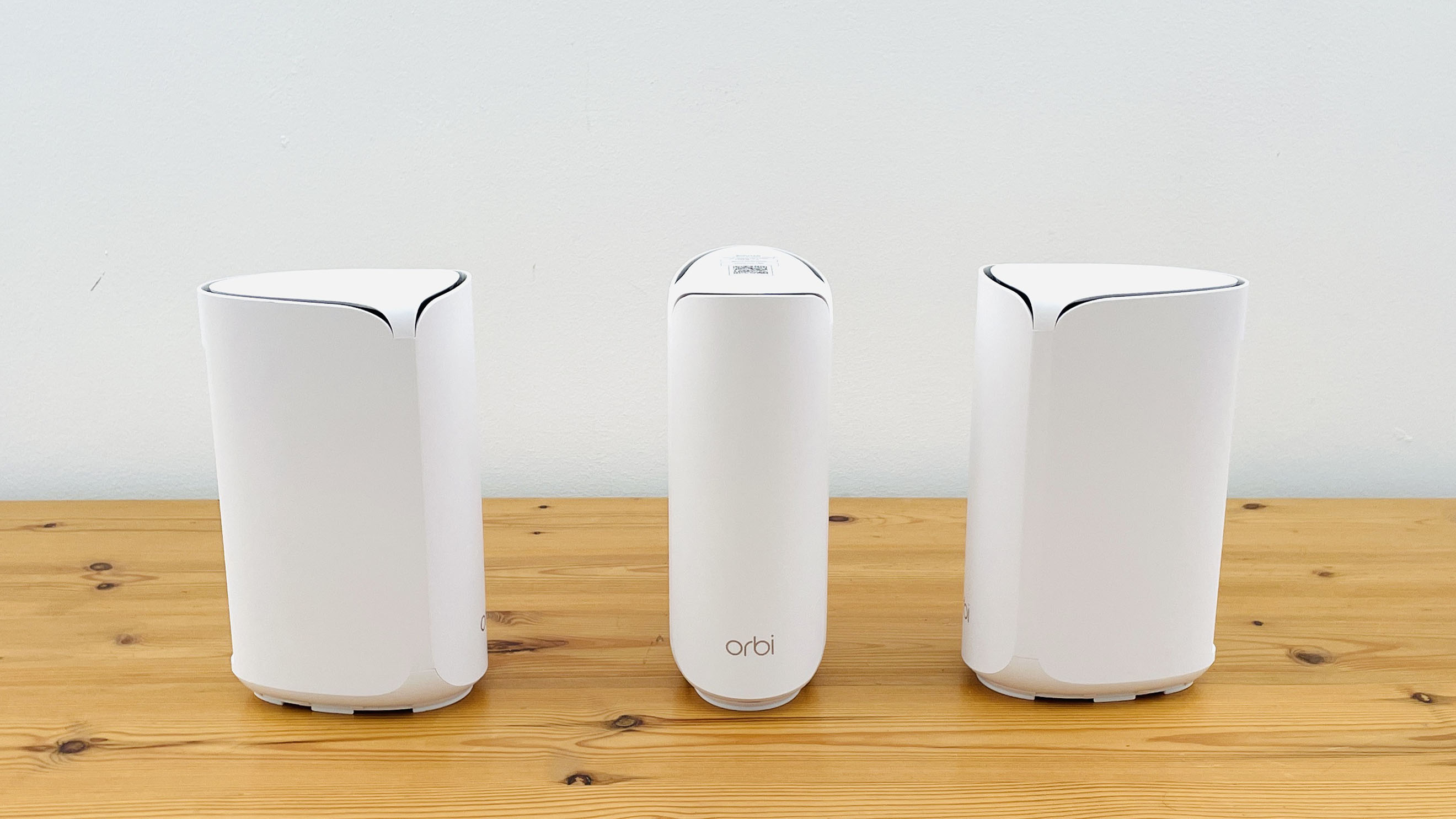
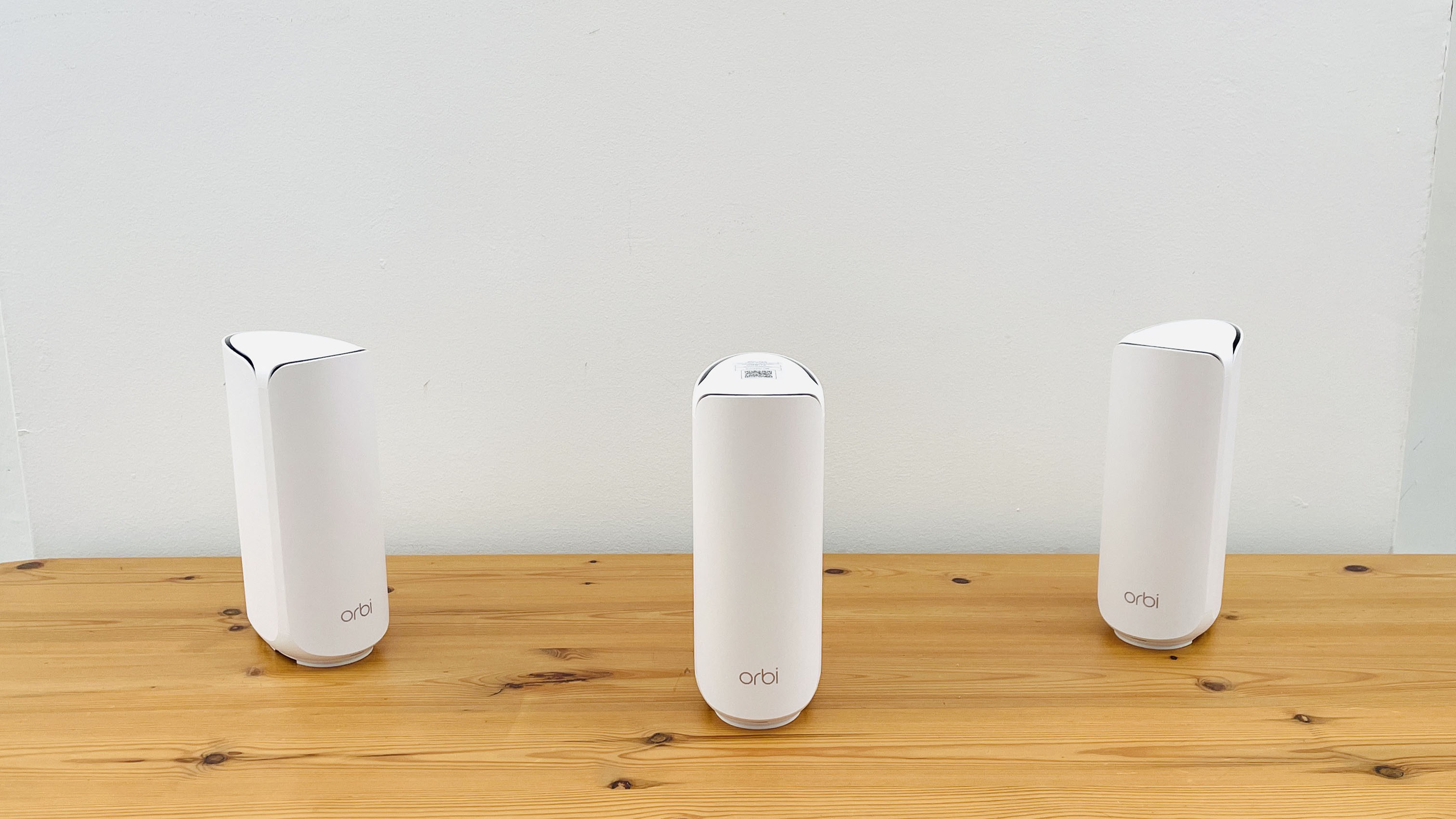
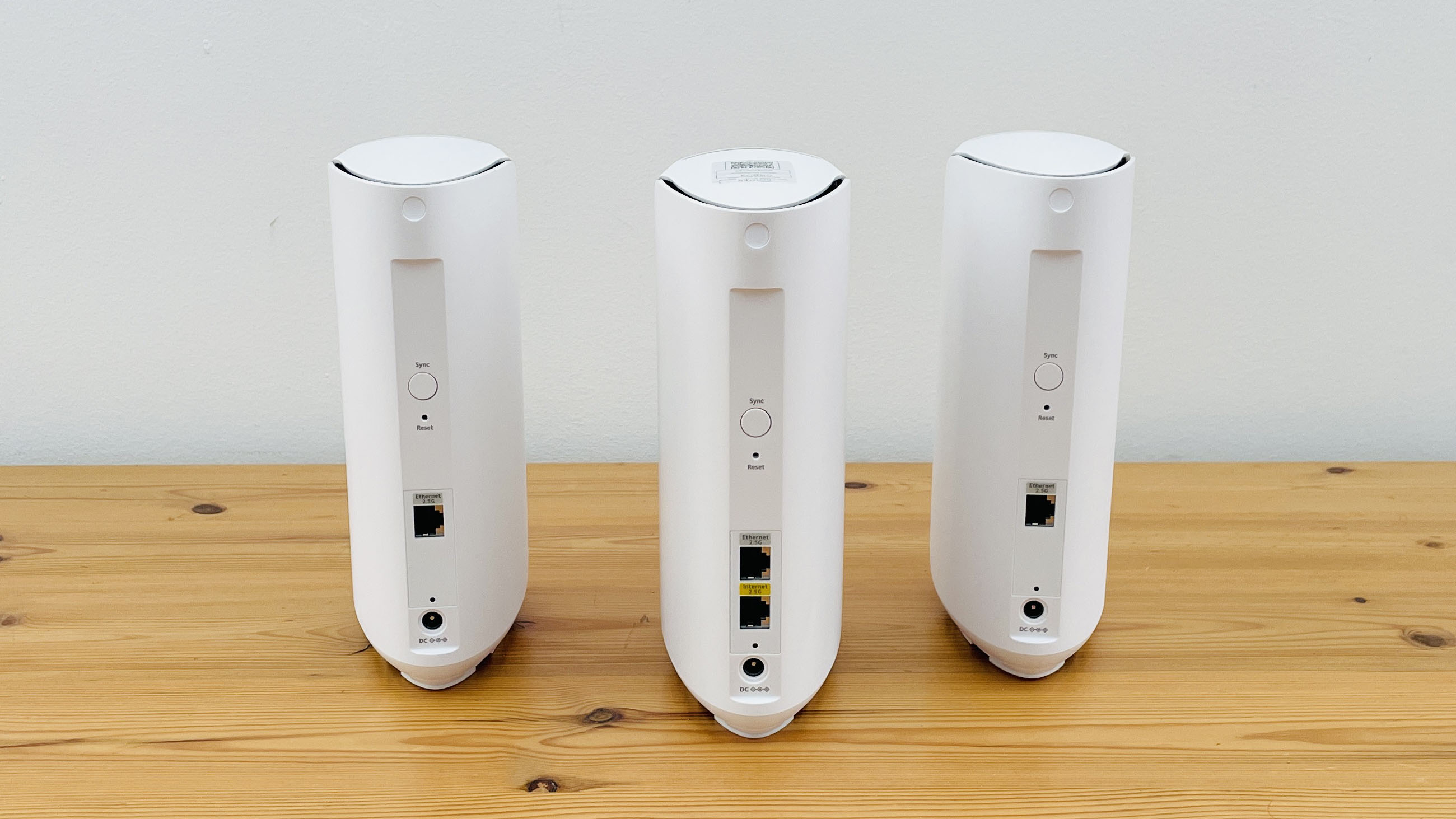
Specifications
Reasons to buy
Reasons to avoid
Netgear's Orbi lineup of mesh Wi-Fi routers are usually very expensive, but its new budget release, the Orbi 370, combines the ease of use and design quality we've come to expect from Orbi routers, but with a very competitive price.
This is a dual-band Wi-Fi 7 router, so you get the 2.4GHz and 5.0GHz frequency bands, but not the faster 6.0GHz band that is available with both Wi-Fi 6E and Wi-Fi 7.
So, it's not the fastest router out there, but for most people it'll still offer everything they need for a fast and dependable wireless home network, especially as Wi-Fi 7 isn't just about speed, but also futher improving the stability and reach of your network.
We reviewed the Orbi 373 pack, which features three units, which makes it ideal for very large homes. It was very easy to get started, with the automatic setup procedure doing much of the hard work for us.
During our review we saw the Netgear Orbi 373 boost our network speeds to make use of our broadband connection (despite only being dual-band, the Netgear Orbi 373 will offer more than enough speed for household broadband connections). You can also set up parental controls, though you have to pay a subscription for the Orbi's built-in service.
Read our full Netgear Orbi 373 review
The best gaming Wi-Fi router
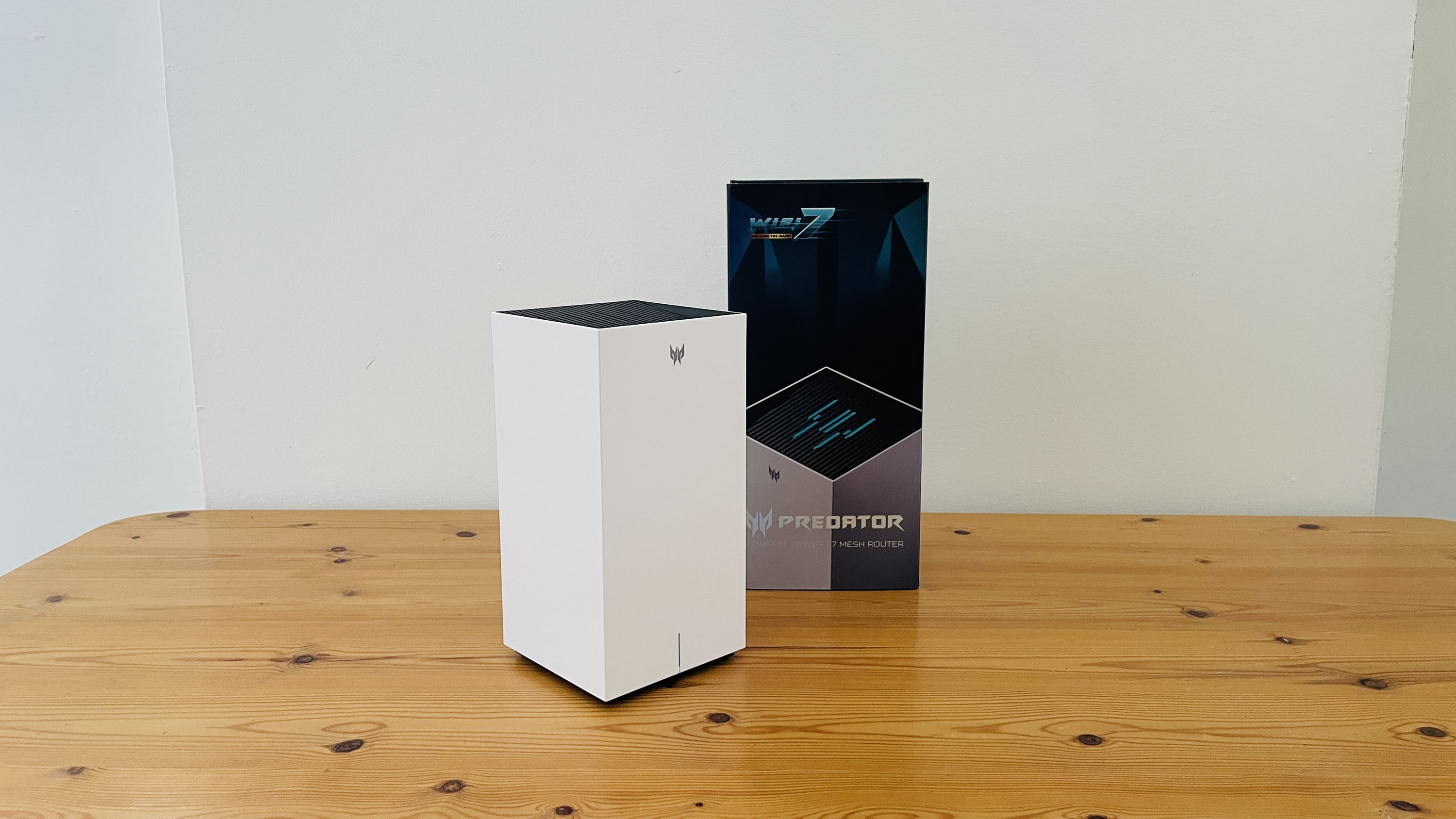
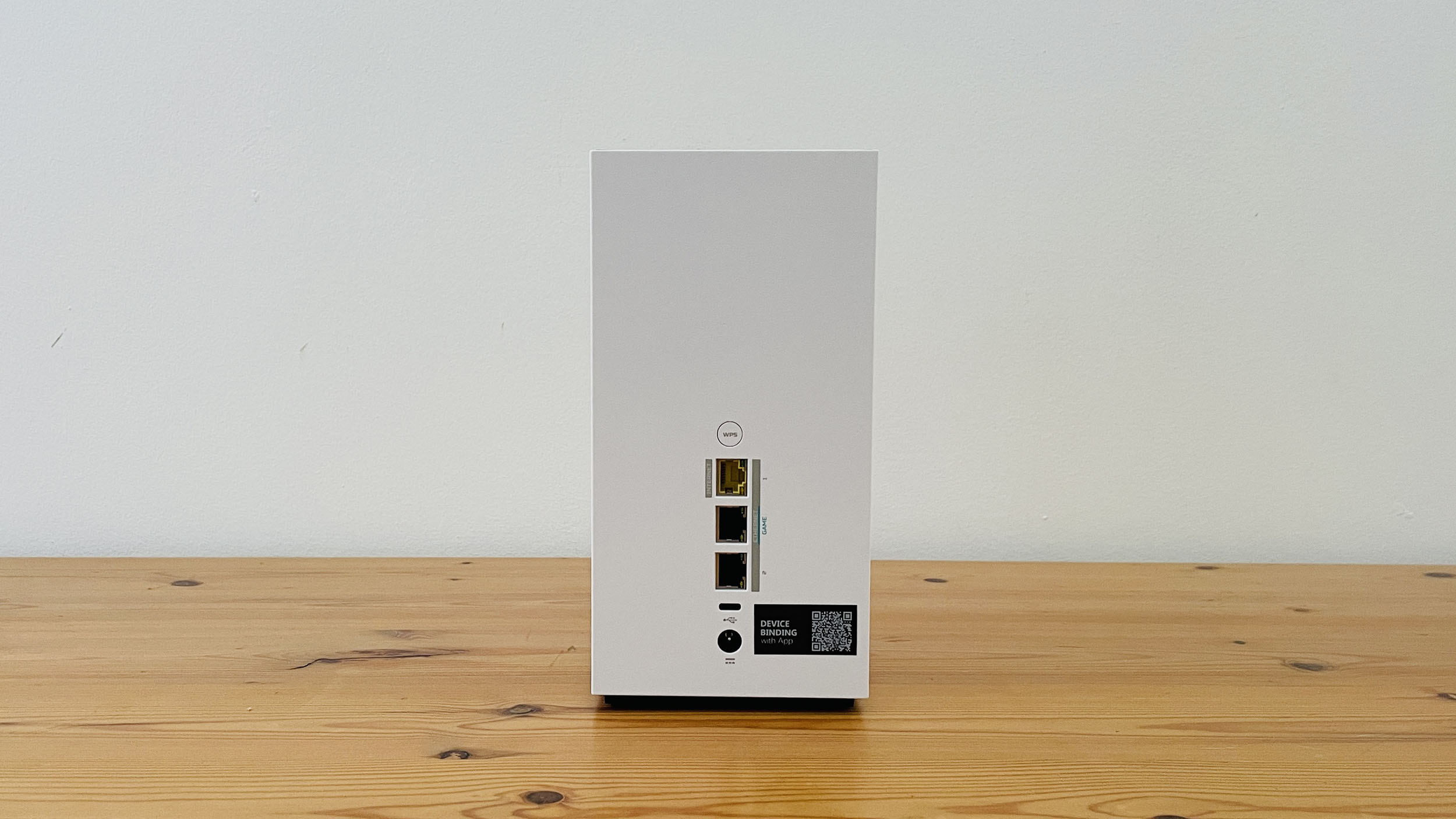
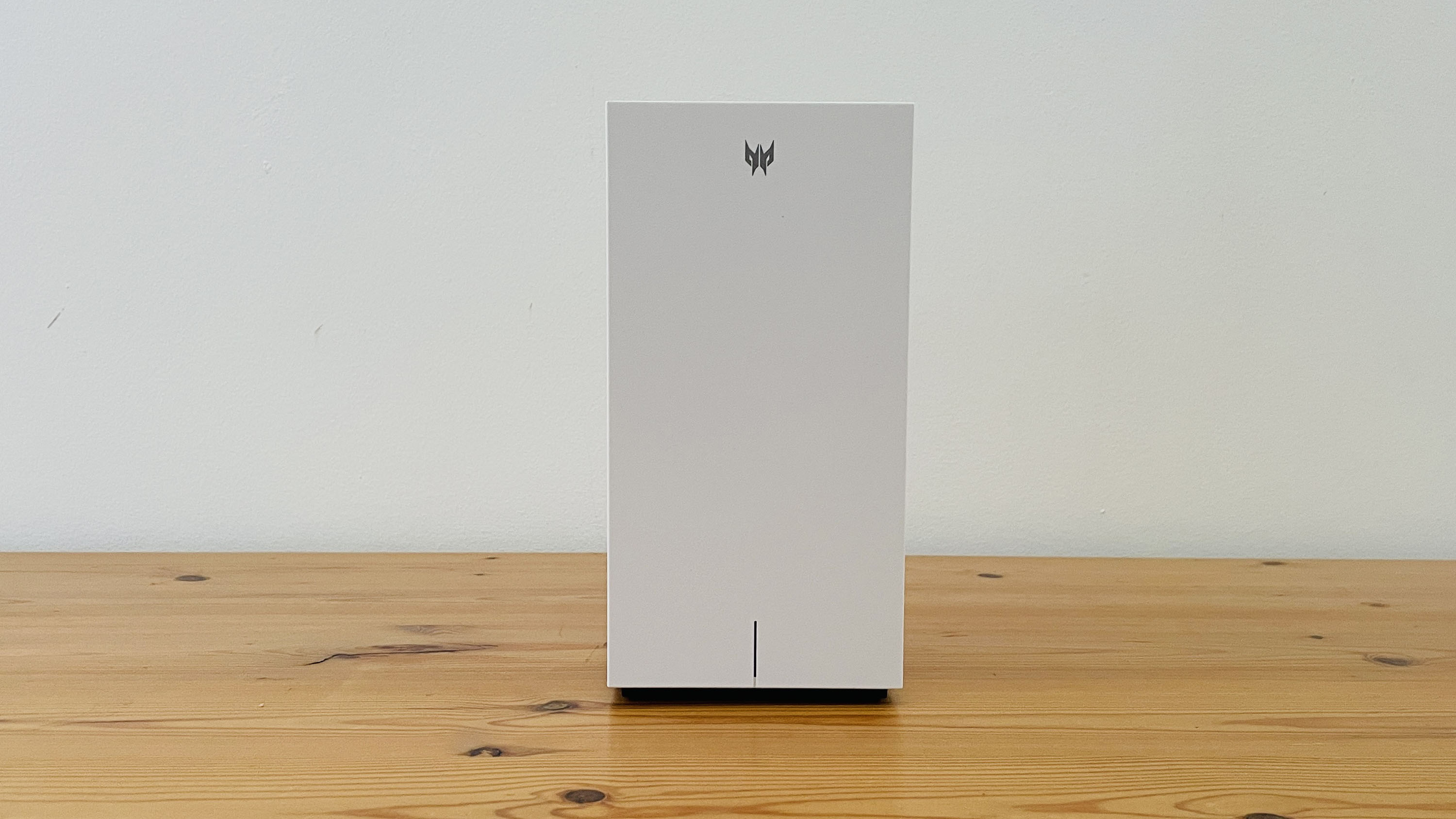
Specifications
Reasons to buy
Reasons to avoid
The Acer Predator Connect T7 is the best gaming router you can buy in 2026, and can be bought as a single unit to act as a regular router, or you can buy it in packs with additional units that turns it into a powerful mesh Wi-Fi system.
As part of Acer's Predator product series, the Connect T7 comes with gaming-centric features that's geared towards online gamers who want to have the flexibility of a wireless network without the impact to latency that that can sometimes involve.
Other features included with the Connect T7 include a QoS (quality of service) option, which prioritizes high-bandwidth tasks such as gaming or streaming video for specific devices, plus security and parental control features, and two Gigabit Ethernet ports for wired connections.
In our tests, we found that the Acer Predator Connect T7 gave us fast and dependable Wi-Fi speeds across the entire building, and it's particularly adept at dealing with busy home networks that have loads of devices connecting at once. However, the T7's top speed of 11Gbps is incredibly fast, and will be overkill for most people, and if you're not a gamer, then there are better value Wi-Fi routers out there.
Read our full Acer Predator Connect T7 Wi-Fi 7 Mesh Router review
The best Wi-Fi 6 router
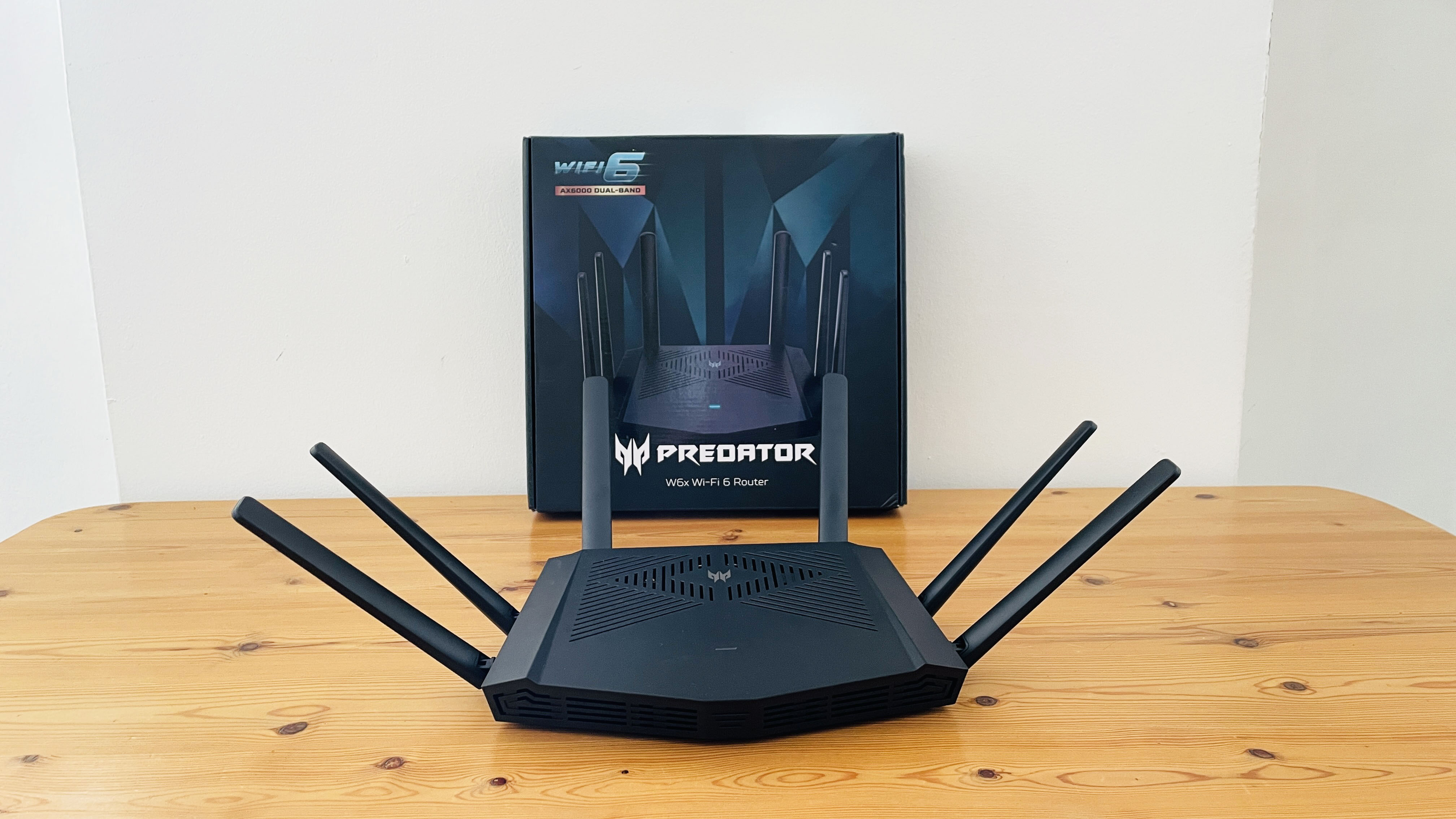
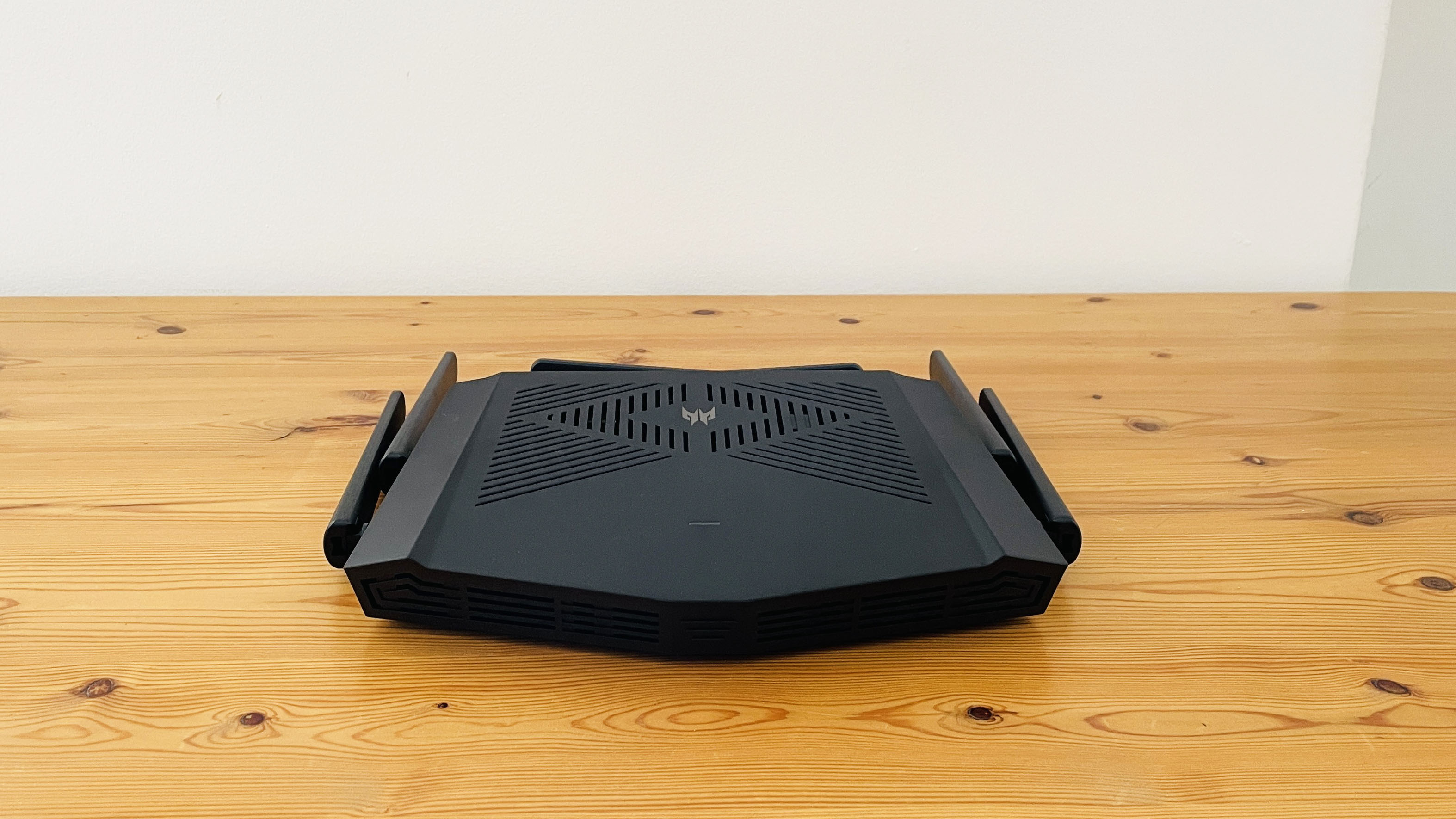
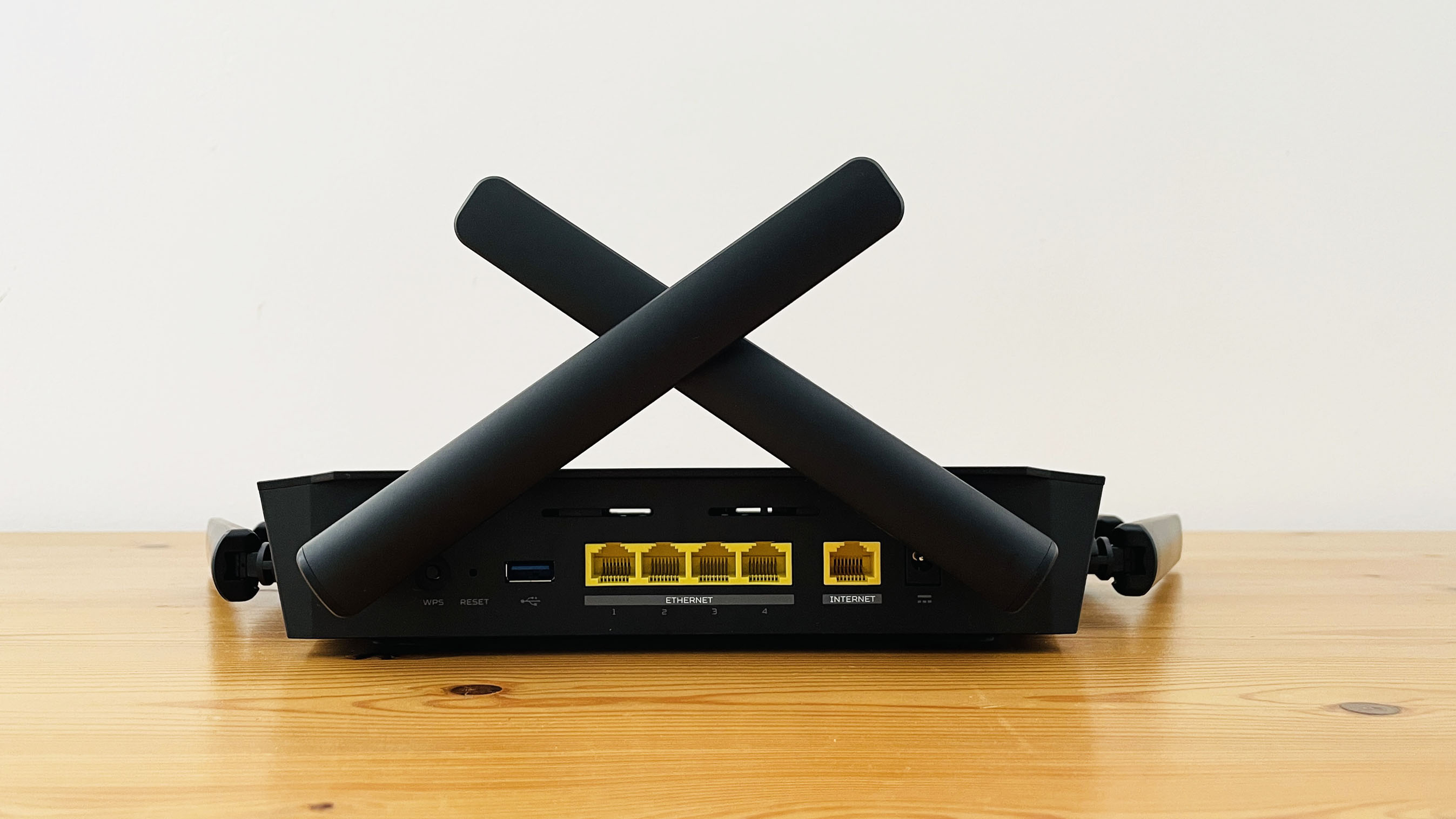
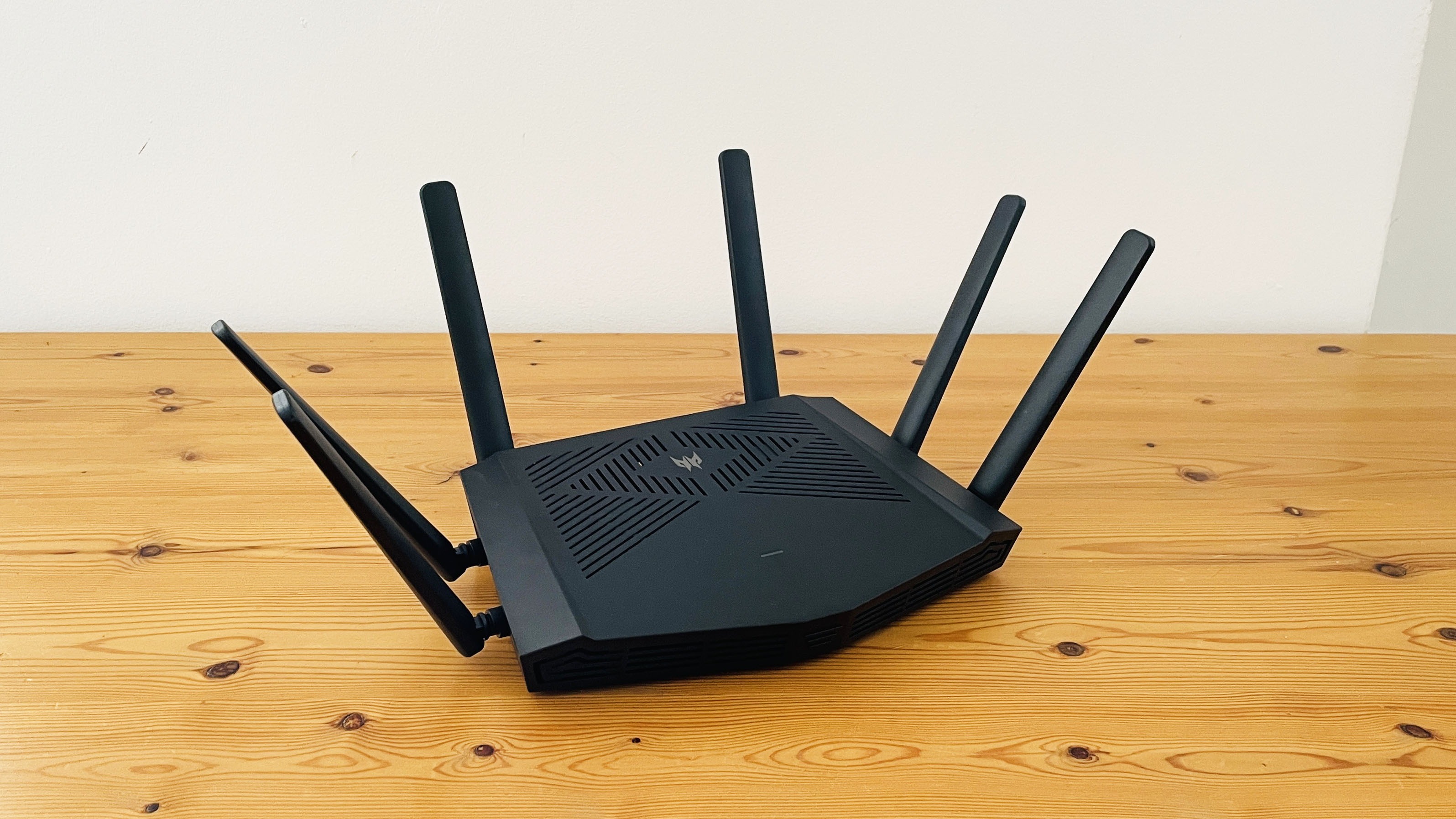
Specifications
Reasons to buy
Reasons to avoid
While Wi-Fi 7 is getting increasingly popular, there are still a lot of devices that don't support it. While Wi-Fi 7 is backwards compatible, so older hardware can connect to Wi-Fi 7 routers, those devices can't take full advantage of the newer technology.
So, buying a Wi-Fi 7 router might not be the best choice if you don't have many devices that will benefit from it, so you can save a decent amount of money by going for a Wi-Fi 6 router instead, and that's why we recommend the Acer Predator Connect W6x. It sticks with dual-band Wi-Fi 6, which while not the fastest, should still be plenty for most people.
This is a gaming router, but can still be used by non-gamers, and the design doesn't look outrageously flashy (like some gaming products do). You get a 2.5Gb Ethernet port for a high-speed Internet connection, plus four Gigabit Ethernet ports for a gaming PC or console if you prefer a lag-free wired connection.
It also comes with some useful features including free security and parental controls, something its rivals sometimes charge extra for. It also has a QoS option to prioritize gaming network traffic for the very best performance.
When reviewing the Acer Predator Connect W6x, we were impressed with how well it worked with devices in the same room as the router, while also expanding our test Wi-Fi network to areas of the building that were usually out of reach. However, the range isn't as big as many newer Wi-Fi 7 routers, so network speeds began to drop when connecting several rooms away from where the Acer Predator Connect W6x was installed.
Read our full Acer Predator Connect W6x review
The best Wi-Fi router: FAQs
Which is best Wi-Fi router for home use?
There’s no definitive answer here, since every home is different, and every household has its own set of requirements.
However, for larger homes (or multi-story homes), you should definitely be looking at a mesh router such as the TP-Link Deco BE63, which provides excellent coverage and is robust enough to handle the demands of a heavy-use home, that has multiple users and a large number of wireless devices.
What does a good Wi-Fi router cost?
Again, the answer to this will depend on the size of your household, the number of wireless devices, and the demand that is put on your network.
More modest-use homes can find high-quality budget Wi-Fi routers such as the Asus RT-AX55 for a comparatively modest price tag and will provide ample coverage for things such as media streaming and everyday browsing.
Generally speaking, a good budget router should set you back no more than $150, while you should expect some change from $300 for a decent mesh system such as the Netgear Orbi 770.
Which router has the best Wi-Fi?
The latest Wi-Fi technology is known as Wi-Fi 7, and so buying a router that supports Wi-Fi 7 will ensure you get the very best results. One of the advantages of Wi-Fi 7 is that routers that support the technology can offer much wider and more stable wireless networks.
Wi-Fi 7 routers are also backwards compatible, so while you'll get the best results with devices such as smartphones and laptops that come with Wi-Fi 7 hardware, older devices will still be able to connect. The TP-Link Deco BE63 is our current pick as the best Wi-Fi router, and it supports Wi-Fi 7.
You might also want to consider a Wi-Fi 7 router with external antennae. These can give you better control over where your Wi-Fi signal is sent, so if a device is struggling to connect, pointing the antennae in its direction could help. The Asus ROG Rapture GT-BE98 is a great choice for this.
How to choose a wireless router
When picking out a Wi-Fi router, there are a few things to keep in mind. Upgrading your wireless network is not a one-size-fits-all situation.
The first thing to consider is the type of router you need. You’re generally picking from two form factors: a traditional single-unit router and mesh Wi-Fi systems that are made up of multiple units, often one that connects to the modem with two or three satellite units strategically placed around the home or office for wider coverage.
If you have a small home or office, a normal router will more than cover you, not to mention cost less. For larger homes and offices though, a mesh router will do a much better job of reaching every nook and cranny with a strong, continuous signal as they provide a much larger area of coverage. They’re also much better at eliminating or minimizing dead or weak spots.
However, if you do have a newer router that just doesn’t have the reach you need, you can save a little and invest in a wireless extender instead of getting a more expensive mesh Wi-Fi router.
Once you’ve settled on the type of router you need, make sure it’s fast enough for your requirements. Most contemporary routers should at least have the Wi-Fi standard of 802.11ac aka Wi-Fi 5, or really these days you want Wi-Fi 6 support at an abosolute minimum. Wi-Fi 6E routers offer an upgrade in performance and range, while Wi-Fi 7 routers are also becoming more popular. However, Wi-Fi 7 is still relatively new, and that means those routers can be quite a lot more.
If you have a router with a slower and older standard like 802.11n (Wi-Fi 4), it will act as a bottleneck to your network no matter how fast the connection is from your provider or what speeds your new laptop can support.
Lastly, while most devices are wireless or support a wireless connection, you’ll want to use ports for some of them. Maybe someone in your household is a gamer and needs the fastest speeds possible. Being able to connect that PC or console directly via an Ethernet port is going to be much more vital than for general internet use. And, if you have an older PC or printer, you’ll probably need to physically connect that to the router as well.
How we test Wi-Fi routers
We test every Wi-Fi router before we make our recommendations. We take a look at its design to ensure that they can blend in your space. We check its ease of initial setup and use, as well as its ports and features – like the ability to create a guest network and set up family controls.
Moving on to its performance, we check its range and strength of coverage. We find out how it performs in the Ookla speed test and our file download test, jotting down any information we collect. We also test it against our everyday network usage to give you a glimpse on its real-world performance. We then take everything we’ve learned and measure all that against its price to see if it’s a great value to consumers.
Today's best WiFi Router deals
Sign up for breaking news, reviews, opinion, top tech deals, and more.

Matt is TechRadar's Managing Editor for Core Tech, looking after computing and mobile technology. Having written for a number of publications such as PC Plus, PC Format, T3 and Linux Format, there's no aspect of technology that Matt isn't passionate about, especially computing and PC gaming. He’s personally reviewed and used most of the laptops in our best laptops guide - and since joining TechRadar in 2014, he's reviewed over 250 laptops and computing accessories personally.
- Rob WebbContributing Writer